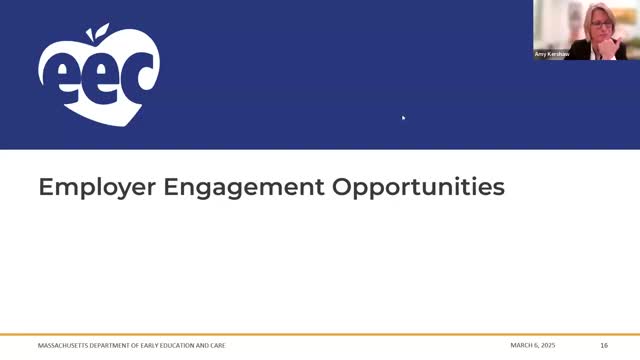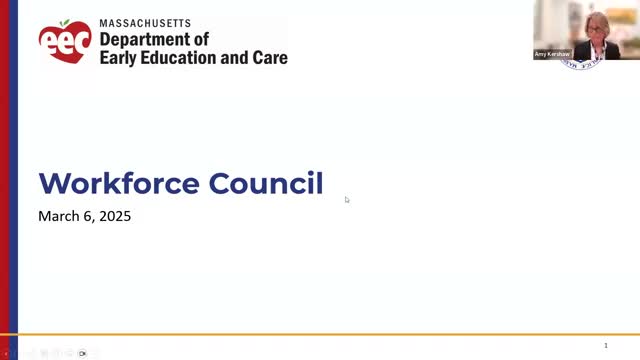Article not found
This article is no longer available. But don't worry—we've gathered other articles that discuss the same topic.

EEC plans employer-supported pilot and small-business supports to expand child-care capacity

EEC: $7.5M in FY25 for loan-repayment program; applications expected in fall

EEC outlines credentialing pathway, educator portal and regional salary workgroups

